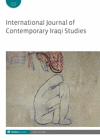- Home
- A-Z Publications
- International Journal of Contemporary Iraqi Studies
- Previous Issues
- Volume 7, Issue 2, 2013
International Journal of Contemporary Iraqi Studies - Volume 7, Issue 2, 2013
Volume 7, Issue 2, 2013
-
-
Kurdish nationalism: What are its origins?
More LessAbstractThere is a general perception among some academics and Kurdish nationalists that Kurdish nationalism is ancient and inherent as demonstrated by centuries of history. These primordialists reference a distinct Kurdish culture and language and literature as the foundations for an ancient Kurdish national identity. An opposing camp of modernists asserts that the concept of nationalism is a product of industrialization and modernity. The issue of the origins of nationalism has advanced little beyond the primordial–modernist debate. An alternative approach to the emergence of nationalism is presented by the works of Anthony Smith. This approach, labelled ‘soft’ primordialism, acknowledges primordial and modernist elements of nationalism. Herein lies the issue: Where does nationalism come from? Is it inherited or constructed? This article will revisit the classical debate between the two dominant theories on nationalism and assess their applicability to the Kurdish case. It argues that neither the primordial nor the modernist approach alone can account for the origins of Kurdish nationalism. Instead, the article argues nations – as the Kurdish case will reveal, contain both primordial and modern characteristics.
-
-
-
Al-Menbar Group and the Iraqi communist movement
More LessAbstractThis article, drawing on party literature and author interviews, surveys the intellectual trajectory and ideological critique of the Al-Menbar, which started as a dissatisfied group within the Iraqi Communist Party (ICP) during the 1980s and subsequently emerged as a break-away faction. The Al-Menbar critique of the ICP, which it viewed as intellectually and operationally stagnant, covered the central issues of Iraqi politics, including: a discussion of the collapse of the progressive ‘National Front’ in 1979 and the consequential repression of the ICP by the Ba’th; the accelerating Iran–Iraq war; the nature of the ‘Kurdish question’ within Iraqi communist politics; and the role of the Iraqi revolutionary movement within the context of Arab politics. Finally, this article assesses the legacy of the short lifespan of Al-Menbar within the Iraqi revolutionary movement in particular, and Iraqi politics generally.
-
-
-
A balancing act: The Sadrist movement between nationalist rhetoric and sectarian politics
More LessAbstractAfter the US surge in 2007, the Sadrists were at crossroads. The Mahdi Army’s proclivity for violence had been discrediting Sadr’s movement and was increasingly allienating its own constituency. Therefore, they started to refocus on politics. Generally, the Sadrist behaviour after 2009 can be defined as ‘electoral militarism’, a symbolic extension of the conflict as an electoral strategy. While the leadership has to compromise with Iran and support sectarian politics, they at the same time jealously protect the movement’s nationalist outlook, using a rhetoric focused on national unity and emphasizing the movement’s independence. This dualism between rhetoric and action is the most basic contradiction in the Sadrist movement today – and in Iraq in general.
-
-
-
Children of the occupation: A decade after the invasion
More LessAuthors: Jacqueline S. Ismael and Shereen T. IsmaelAbstractThis article covers a 23-year period, from 1990 to 2013, to describe the systematic degradation in the quality of life that children born in Iraq over this period were subjected to by global geopolitical machinations. The period is broken into three successive stages – sanctions, invasion and post-military occupation – to describe the process of occupation and its impact on infants and children. The statistics that were regularly published by international agencies and non-governmental organisations (NGOs) throughout the process showed the plight of Iraqi children as innocent victims of global policies known to the policy-makers.
-
-
-
At the mercy of the elements: Cultural preservation of ancient sites in Mosul (Nineveh Provence)
More LessAuthors: Helen Malko and Nineveh YakouAbstractThis article presents the richness of Mosul’s cultural heritage and its historical roots. It also lays out the various elements that played a role in the loss of important cultural heritage sites throughout the city, particularly in the last ten years. While modernization and development, neglect and decay, wars and economic sanctions have taken their toll on the city’s cultural heritage, the absence of historic preservation legislation, preservation authority, national register, and planning authority have resulted in even greater losses. In spite of the antiquity laws that protect and preserve the heritage of Mosul and of Iraq, many archaeological and historical monuments have been destroyed and lost. While examples of successful preservation projects are present in the city, more work is urgently needed to prevent further damage.
-
-
-
Book Review
More LessAbstractWe Are Iraqis: Aesthetics and Politics in a Time of War, Al-Ali, Nadje and Deborah Al-Najjar (2013) Syracuse, NY: Syracuse University Press ISBN 780815633013, 266 pp., US$45
-
Most Read This Month


